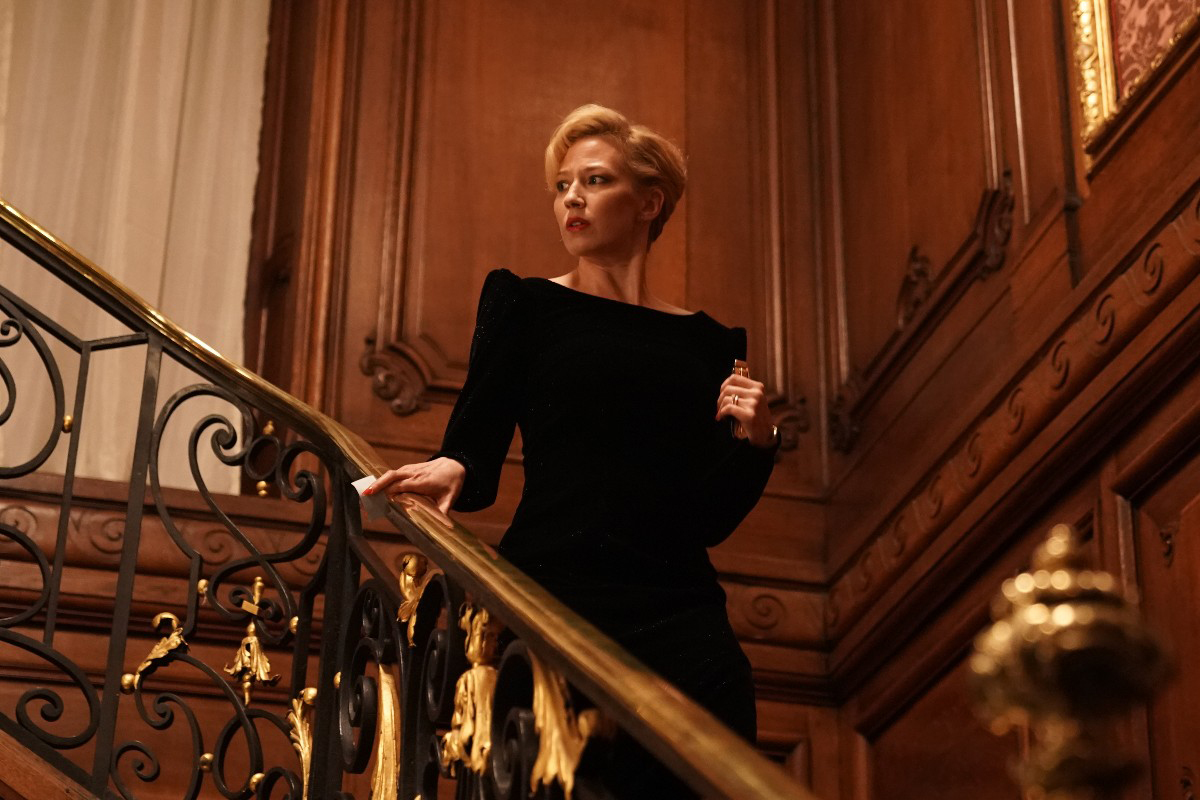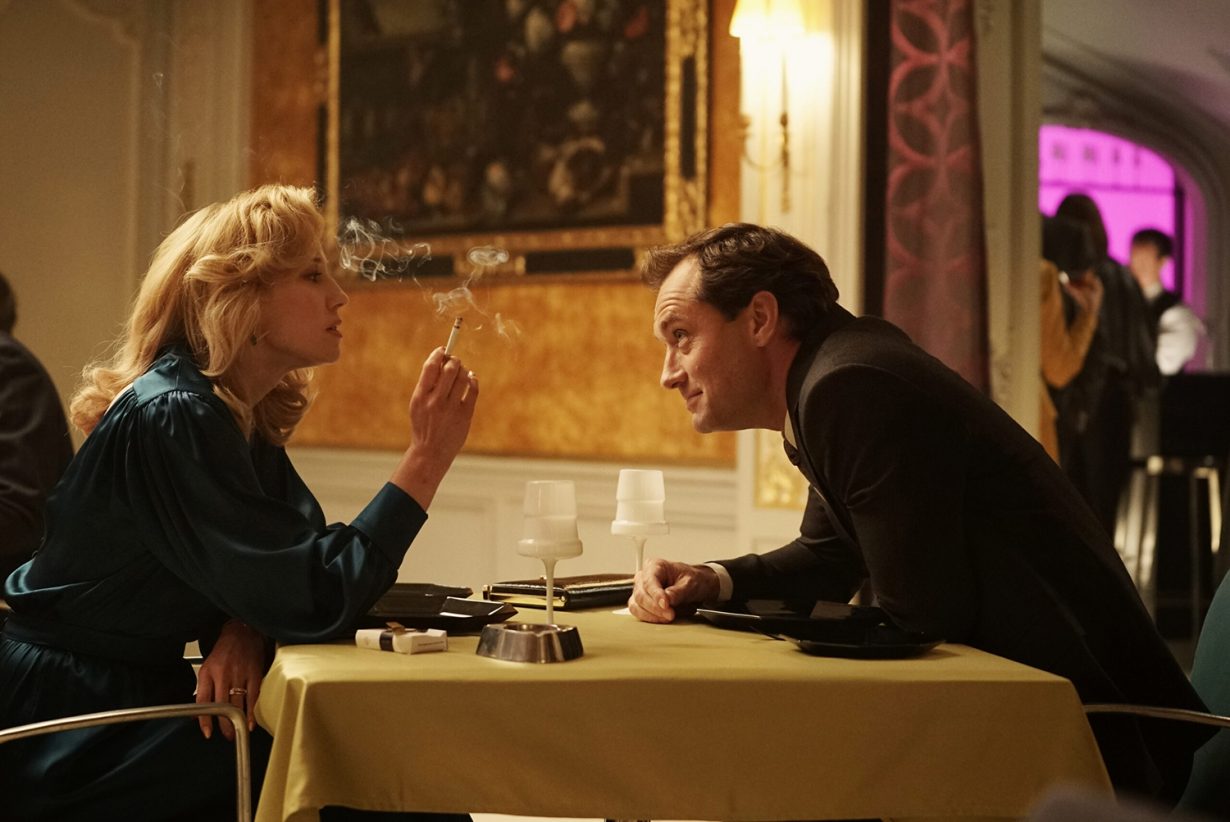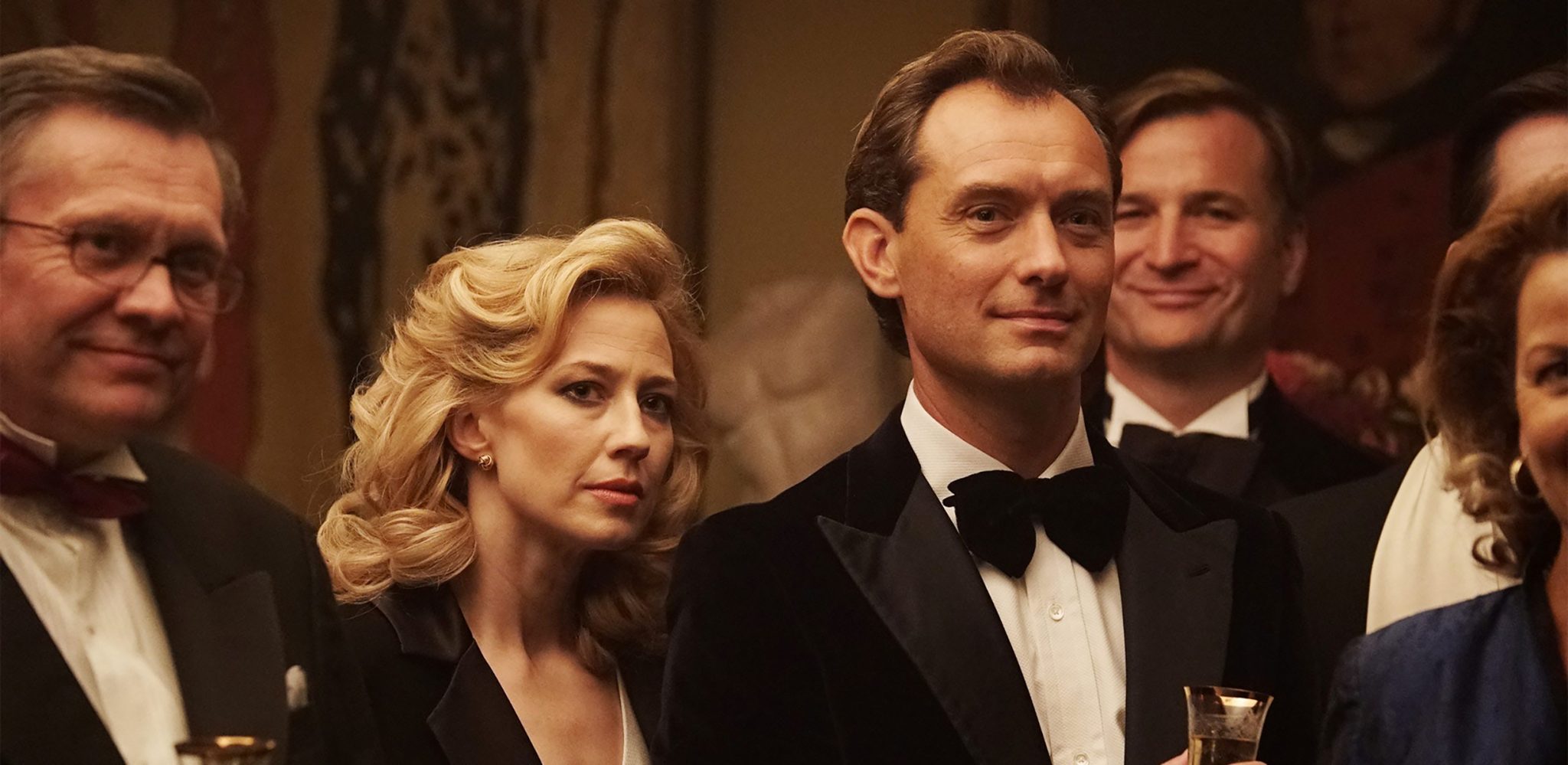Sean Durkin’s family drama, set in the 1980s neoliberalism of Reagan and Thatcher, demonstrates the ruinous result of getting what we think we want
In Sean Durkin’s The Nest (2021), Carrie Coon makes good on every tweet in history that has said something like ‘I want Carrie Coon to murder me,’ or ‘I want Carrie Coon to hit me with a hammer,’ or ‘I wish that Carrie Coon would run me over in her car,’ playing a frightening, glacial equestrian trainer with a stiff blonde coif named Allison O’Hara. She’s erotic in the way that certain old, white literary men believed – mistakenly, since while it’s possible for playful sadism to be arousing, it is not hot to be genuinely evil – Margaret Thatcher was erotic: all flared nostrils and arched brows, as coiled and cool-skinned as a snake. (“The eyes of Caligula,” as Anthony Powell said, somewhat sickeningly, about Thatcher, “and the mouth of Marilyn Monroe.”) Allison is married to a man named Rory, an ineffectual trader played by Jude Law who was once, we must assume, gorgeous enough that nobody would dare to challenge him, but is now a little bald and beaten-down. Reagan is President, and greed is apparently good, and the O’Haras have been serially relocating, chasing money, always falling slightly behind as they borrow liberally from Peter to pay Paul. In the film’s opening scenes, it is revealed that they must move to a cavernous, shabby mansion in the UK for what Rory calls “an opportunity” in London, and what Allison immediately recognises as another frantic dash to escape Rory’s creeping failures.

In another film, their move to this undeniably haunted-looking property might be the set-up for a ghost story. Quite often, The Nest’s style in general – its cinematography, its air of threat and gloom – is eerie, too, reinforcing the immediate sense that something dark and terrible might happen. At the climax of the film, there is a scene involving animal death and a shallow grave that is so gothic that it scarcely seems at home in what is otherwise a family drama, a thriller in which the thrill comes from wondering whether Allison or the O’Hara family’s finances will implode first. There is something of the Macbeths about the O’Haras: the ambitious husband who is nevertheless apt to lose his nerve, the ice-cold wife who terrifies. Their dynamic, in which she is meant to be a pretty trophy for him to display at dinner, is so ill-suited to Allison’s entire way of being that the idea feels absurd, as if a rabbit had been trying to keep a lion as a pet. Because the viewer knows that historically speaking, what goes up will eventually crash back down, Durkin’s situating of The Nest in Reagan’s 1980s is its own sly brand of jump-scare, almost titillating if you happen to enjoy seeing wealthy, avaricious con-men being forced to take their lumps.

Given the film’s uneasy tone, you might momentarily wonder whether Rory will end up being lucky enough to actually be murdered – with a hammer, with a car, maybe even with a horse – by his domineering spouse. When she does finally deign to murder him, it is in fact only a figurative killing, and the weapon is her curdled disappointment: the scene, which plays out in a bougie London restaurant, is the best in the whole film. Rory, in denial about their money troubles, is insisting that in ten days, he will get a cheque so large that it will make them rich again. “What’s it for?” Allison asks, and he demurs. “I saw some deposits that you made, it’s nowhere near what you’re spending,” she says, coolly, before sucking on her cigarette and – suddenly, brilliantly, Coon acting out the shift in mood with such a deft touch that the change itself is as ephemeral and light as smoke – making the choice to lean so hard into her husband’s self-delusion that it shames him. “Then we can order whatever we want,” she shrugs, reeling off a list of items that includes the Chateaubriand “for my princess.” “Don’t look at him,” she tells the waiter, haughtily, “I’ve already told you what we want.” Maybe The Nest is actually a horror movie, a morality tale in an old-school model that demonstrates the ruinous result of getting what we think we want – as good an argument against capitalism as it is an argument for the continuing success of Carrie Coon.
